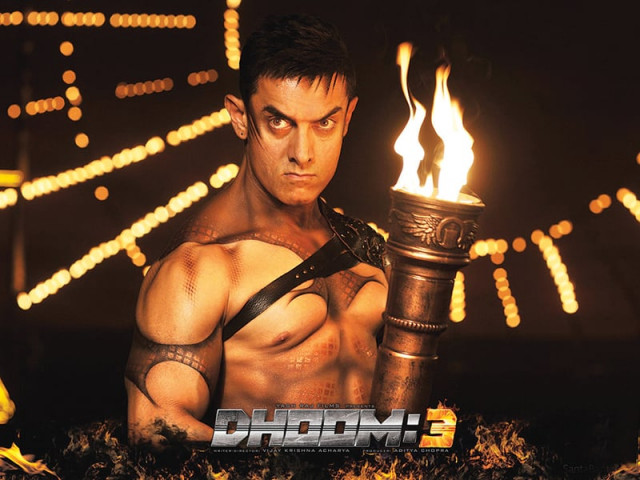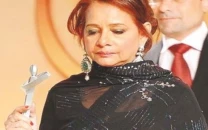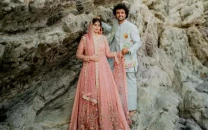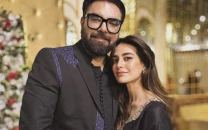Exploring Bollywood’s morality problem
For Bollywood to make progress, film-makers must ask: What need is there for selective morals in the first place?

Exploring Bollywood’s morality problem
Bollywood is the unoriginal, yet convenient name given to the Hindi film industry. To be more specific, it largely refers to the Mumbai film scene, home to some of the biggest stars in India. It isn’t necessarily the script that makes a film in Bollywood. More often than not, it is the presence of one big star that seals the fate of a film. How else can one explain the enormous success of Salman Khan’s films or before that, Akshay Kumar?
Though young film-makers like Imtiaz Ali (Jab We Met, Rockstar, Highway) and Ayan Mukherji (Wake Up Sid, Yeh Jeewani Hai Deewani) are trying to move beyond the dogma of moralistic teachings, it is still a long road ahead.

The Dhoom franchise is a prime example. Considering the fact that Dhoom 3 is such a ‘blockbuster’, box office returns don’t necessarily ensure that a film is half-decent.
The first film in the series, Dhoom, starred John Abraham as a villain, while Abhishek Bachchan and Uday Chopra were on the side of the angels. During the climax of the film, John’s villain chooses death over life, when caught red-handed with stolen cash. It is a grey ending. No one wins. Everybody loses.
By the second film, Hrithik Roshan’s uber-cool thief steps in place as the villain, with a beautiful Aishwarya Rai in tow. Moving past some ‘inspired’ scenes, it is an entertaining film — escapist Indian cinema at its best — until the final scene, where the slick thief (who has by now fallen deeply and madly in love with Aishwarya’s character because, well, who wouldn’t?) gives up all stolen artifacts, retires from stealing and crime, and becomes a cook with his girl. Then there’s Abhishek’s cop, Jai Dixit, who uncovers this fact, and lets this ridiculously good-looking, redeemed dream team of robbers go because, well, they’re in love. Huh? Happy ending for everyone, guys.

Dhoom 3 loses the plot completely. First, the film reduces actor Katrina Kaif (no need for snickering, she can act) to a prop, with some songs thrown in, giving one the illusion that she’s actually a part of the film. Aamir Khan’s double-role is overwhelming. He is in every frame. Beyond that, his villain has a sad backstory that is supposed to justify his criminal activities. By the end, both brothers achieve what they set out to do, and jump off a bridge and die. To make matters worse, Abhishek’s character narrates how even with the evil brother calling the shots, he won in death. Huh? He’s dead, what victory? But then, this is to be expected when a film is pandering to one star.
Such endings needs some original thought, after repeating twice in three films. Even the method is exactly the same. Why give Aamir a backstory and not the others? Bollywood is operating under the delusion that underneath every villain (when played by a major star), there is a man who has been wronged and that’s the most reductionist and boring approach to take. It worked in the 80s and 90s. Think Baazigar where Shah Rukh Khan’s psychopathic murderer has a super sad background story. It is also obvious, while watching Karan Malhotra’s excessively violent and brilliantly shot Agneepath. You will never be able to look at the adorable Rishi Kapoor in the same way after one view.
Another example is the Don franchise, resurrected by modern-day film-maker-turned-actor Farhan Akhtar. Don, played with panache by one Shahrukh Khan is a narcissist and murderer with no guilty conscience. He is greedy, violent and has no qualms about it, which is a delightful change after watching SRK play the good son, husband, lover and friend in just about every film. He evades the police, but manages to make a serious enemy in Priyanka Chopra after murdering her brother.
However, it is the second film where the evil Don becomes a human being and saves Priyanka’s cop character, to the point that the girl, who was once chasing him for killing her brother, now has a soft spot for him. Farhan Akhtar’s exquisite direction and all those stunts from SRK unfortunately don’t compensate for this gaping plot hole.

Some hypocrisy must be digested or ignored in order to accept new age Bollywood. Religious piety is plenty, as are actors gyrating to unforgettable songs. Violence is acceptable as long as it comes packed with fabulous stars. As is, Indian television has decided that the answer to every housewife’s problem depends on religious fervour, unless there is a fantasy sequence or some wedding occasion where characters will break into Indian film songs. In fact, India has familial television love at an all-time high, with award ceremonies like the Parivaar Awards including categories like Best Bahu (daughter-in-law). Yawn.
With Karan Johar and Ekta Kapoor producing films like The Lunchbox and The Dirty Picture, there are some brilliant films that come in between the big budget fiascos. But by and large, Bollywood has got a bizarre viewpoint of what constitutes good cinema, because it seems that it is neither reality nor fantasy, but a cocktail of the two, driven by economics and star power.
If the point of a film is to entertain, then why ‘force’ a social message just for the sake of it? Good films always find a way. Khosla Ka Ghosla (land mafia), Company (gangs), Taare Zameen Par (children), Wake Up Sid (contemporary relationships), Rang De Basanti (rebellion-revolution), Chak De India (spirit) worked within the parameters of Bollywood and managed commercial and critical appeal. For Bollywood to move beyond sets and costumes and irritating songs, film-makers and stars must ask the question: What need is there for selective morals in the first place?
The writer is a freelance journalist.
She blogs at maheensabeeh.wordpress.com
and tweets @maheensabeeh
Published in The Express Tribune, March 24th, 2014.
Like Life & Style on Facebook, follow @ETLifeandStyle on Twitter for the latest in fashion, gossip and entertainment.



















COMMENTS
Comments are moderated and generally will be posted if they are on-topic and not abusive.
For more information, please see our Comments FAQ